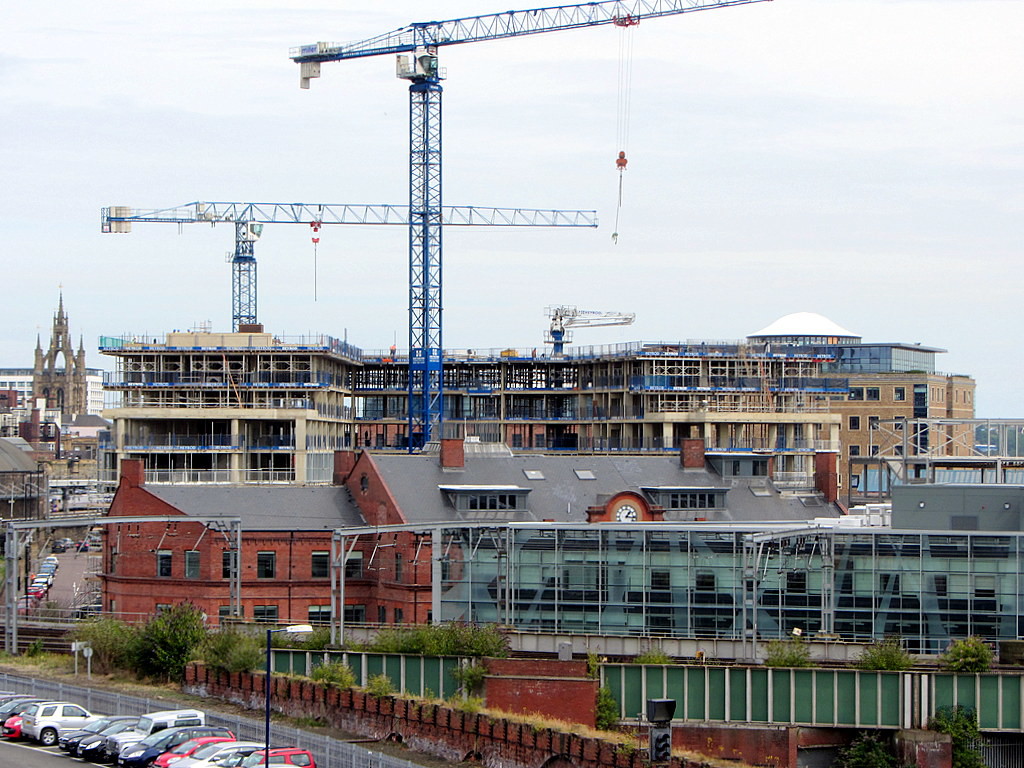The falsely attributed Chinese proverb “May you live in interesting times” is meant as a curse. But if you look at the north east, it could be considered a blessing for a region that seems to thrive in the face of adversity and setback.
I run my own business in Newcastle, providing walking tours of the city – it’s a job I love because more than anything else it allows me to examine the city and tell its story in many ways.
Newcastle is a city with layer upon layer of history – and each is still visible. It is a city which has continually redeveloped itself, from its earliest days as Norman police settlement, through to medieval town and into cultural and industrial capital of the north. It has always, somehow, managed to bounce back after tragedies and troubles: from being besieged in the civil war to providing ships and coal to London, from the decline of heavy industry to the modern science, engineering and education that forms much of Newcastle’s economy today.

Newcastle’s Stephenson Quarter. Photograph by Andrew Curtis and licensed for reuse under Creative Commons.
The north east’s coal fuelled the world, its glass and silverwork achieved global fame, its locomotives revolutionised travel, its ships sailed the oceans and its electrical engineers invented the generators that supply the power to meet our daily needs.
So yes, history is an essential raw material from which I construct the story of Newcastle for visitors and locals. But the story of Newcastle is not just about the past. Constant change grips this city. It has a vibrant music scene, food and drink equal (or better depending on who you ask) to London, a friendly and welcoming Geordie culture with a strong focus on community.
Of course Newcastle and the north east face adversity. There are grim statistics which I can’t conceal from my visitors. A quarter of jobs here are public sector at a time when government spending has fallen dramatically. The city council has suffered some of the biggest cuts in funding. More than a third of children in central Newcastle live in poverty, according to one recent study.
But elsewhere I find positives. The north east has been spared, for example, from HS2, ensuring that our cities do not become London suburbs (as some cheerful economic prophets predict for Manchester). The north east has a strong and growing offshore engineering industry, organisations such as Ignite and Campus North are helping local tech companies realise their dreams, while Project North East is supporting entrepreneurship in all its forms.
As we walk around Newcastle, I’m able to point visitors to two major redevelopments that provide hope in the form of infrastructure. The Stephenson Quarter takes the old Stephenson works where the Rocket was built and converting it into a new leisure, residential and hotel complex in the heart of Newcastle; and Science City, built on the old Newcastle Breweries site, brings together the city’s growing engineering, digital and science sectors with a focus on sustainable business. It also has the backing of one of the city’s two successful universities. Newcastle is anything but dying.
We live in complex, interesting times. But as history proves, this city and region are up to the challenge.
Alexander Iles runs Iles Tours. You can follow him on Twitter.
Do you agree with his views on Newcastle and the north east? Do we dwell too much on our region’s past – or not enough? Tell us in the comments section below – by clicking on the little plus sign.
(Views expressed on our website and in our magazines and emails are not necessarily endorsed by Northern Correspondent.)
